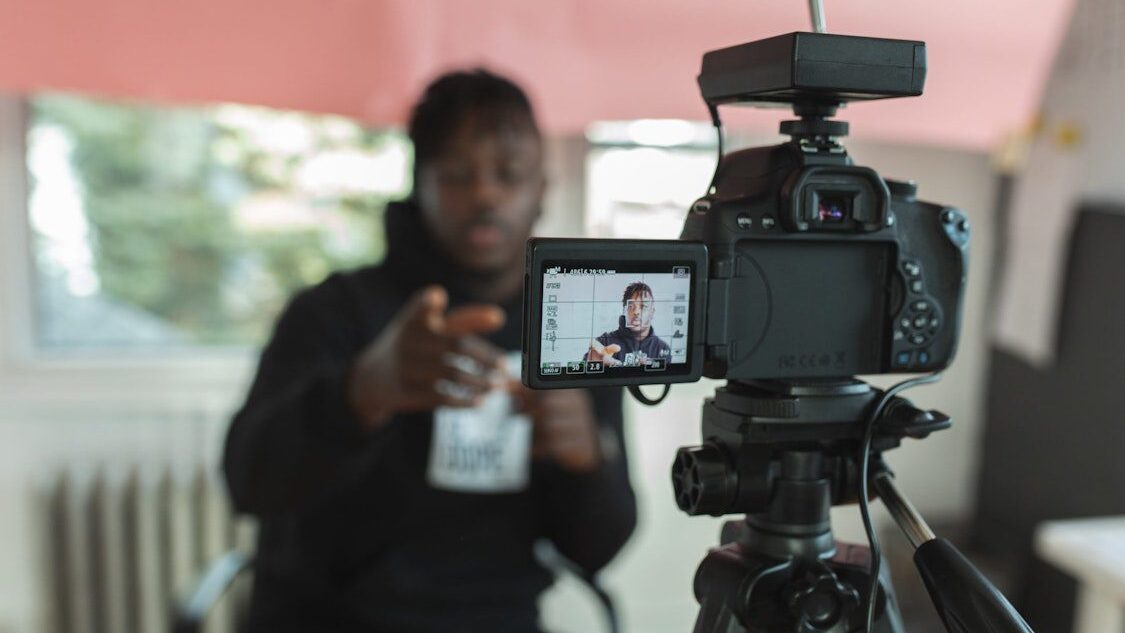
Studies show that white-led organizations had budgets that were 24% larger than those Black-led organizations—the main driver being racially biased funding disparities of over 70%. These disparities are why campaigns like BackBlack matter.
The grantees that foundations support, who are usually overwhelming 501(c)3 nonprofits based in the United States, play vital roles in:
- promoting equity and social justice,
- fostering grassroots movements by working directly with local stakeholders,
- providing expertise and influencing public opinion to media outlets, and
- empowering communities by building awareness and leveraging collective power.
Our client roster at FUNKY BROWN CHICK, Inc. includes charitable foundations dispersed throughout the United States. While they serve different constituencies and have various areas of focus, there are a few commonalities that make them good partners for us:
- they have philanthropic missions,
- they take values-driven approaches to driving social impact, and
- they make a difference in the lives of the individuals, communities, and causes they support.
Whether you’re on our roster or not, here are eight ways that we think foundations can best leverage their power by funding civic engagement efforts led by Black, Indigenous, and other people of color.
1. Address Systemic Inequities
Black, Indigenous, and other people of color are often disproportionately affected by systemic inequalities and injustices. By supporting civic engagement efforts, foundations can more directly tackle these disparities head on.
2. Reduce Blind Spots
By gaining valuable insights and perspectives that are often underrepresented in decision-making processes, foundations can:
- uncover their own blind spots,
- realize ways in which an issue is being misunderstood, and
- understand related issues in more complex and nuanced ways.
3. Build an Inclusive Democracy
Liberty and justice for all needs to actually mean for all. Foundations that support BIack, Indigenous, and other people of color-led civic engagement efforts are actually contributing to building a more inclusive and representative democracy that reflects the US as it is—and always has been.
- Roughly 1 out of every 4 Americans isn’t white,
- and at least 1 out of every 5 Americans are married to a person of a different ethnicity than they are (and that’s without counting dating and cohabiting couples).
That’s us now. When you consider the US is on stolen land—and was built by stolen and enslaved people—a diverse group is who and what the country has always been.
4. Address Barriers to Participation
Black, Indigenous, and other people of color are unfortunately familiar with barriers to civic engagement, as this demographic has often been faced with:
- voter suppression,
- language barriers,
- limited access to information,
- targeted disinformation campaigns,
- among other suppression tactics.
So, if you want to understand how to better combat and decrease barriers to civic participation, listening to people from diverse backgrounds who have direct experience is a crucial step.
5. Create Sustainable Change
We know foundations often care about:
- grantees’ efficient use of funds,
- addressing root causes of issues,
- maximizing resources, and
- otherwise creating sustainable change.
That all sounds great to us! And, if foundations want long-lasting social change, that’s going to require grassroots efforts and community-driven initiatives. By supporting civic engagement led by Black, Indigenous and other people of color, you’re investing in sustainable change that reflects the needs and aspirations of the communities the foundations serve—a total win-win.
6. Foster Leadership
Cultural competence matters. So does representation and authentic outreach. Multiple studies have shown that the wider range of skills and strengths represented in diverse and inclusive leadership delivers improved:
- financial performance,
- productivity,
- innovation,
- and organizational outcomes.
Within the nonprofit world, diverse leaders often hold organizations accountable to their missions and values. Supporting civic engagement efforts led by diverse leaders takes that a step further. It not only benefits the specific organization but also contributes to the overall development of diverse leaders in the US, creating a cycle of positive change.
7. Build Trust and Collaboration
Foundations are overwhelmingly white. If they want communities to trust them and actively engage in civic processes that benefit us all, foundations should take heed of the concerns and perspectives of Black, Indigenous, and other people of color. Take them seriously, even when or if those perspectives aren’t well-understood. In the end, we’re all learning and growing together.
8. Rebuild and Heal
We love our clients. And we serve them with two lines of business:
- On the micro level, we’re rebuilding relationships.
- On the macro level, we’re rebuilding communities.
In either case, when there have been historical injustices and trauma—whether inflicted by individuals or communities—actively engaging with others can serve as a healthy and positive pathway forward to healing and rebuilding. It’s one of the strongest ways to restore ourselves and our communities.
This is What it Looks Like in Action

We all know civic engagement doesn’t stop after an election. If anything, this is when Black, Indigenous, and other people of color-led organizations need foundation support more than ever. They have always known that protecting and expanding democracy in the US is a year-round, every-year commitment. Often done with the least resources and against the greatest odds.
We’re seeing the same challenges today that we’ve seen in the past: voice suppression tactics evolving, targeted disinformation flooding our communities, and systemic barriers that just won’t quit. But we know how to fight this. Black, Indigenous, and other people of color-led organizations have been doing this work for generations. They just need foundations to step up and fund it.
At FUNKY BROWN CHICK, we’re here to help make that connection count. Our team knows how to take messy civic engagement data and turn it into something powerful. We’ve helped organizations run everything from film screenings to digital campaigns that actually move the needle. And yes, we do it all while having some fun along the way—because as our founder always says, just because we’re doing serious work doesn’t mean we can’t enjoy it. We’re grateful for our foundation and nonprofit partners! FUNKY BROWN CHICK is a progressive, Black-owned and woman-led social enterprise. We collaborate with foundations and nonprofits to:
- equip grantees with data analytics training,
- perform data analysis, and
- implement civic engagement programs on their behalf.
We’re particularly good at stitching together nonprofit civic engagement data that is disorganized and distributed between multiple people at various locations spread throughout the United States and Europe. Each campaign is unique, and past successful campaigns have included:
- hosting film screenings,
- workshops,
- seminars,
- informational sessions,
- developing issue-based education websites,
- developing impactful social media and text alert campaigns, and
- creating strategic plans and digital strategies that interpret data for actionable insights and social justice.
Want to be part of building the democracy we all deserve? Let’s talk. Whether you’re a foundation looking to better support Black-led civic engagement or an organization ready to scale up your impact, we’ve got you. Because at the end of the day, this work isn’t just about helping people survive these challenges. It’s about helping them thrive. It’s about ensuring that all people are treated equal, fairly, and with the dignity they deserve.
